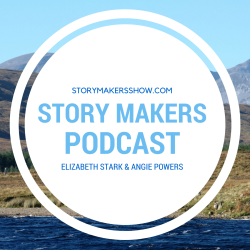Podcast: Play in new window | Download
Subscribe: Apple Podcasts | RSS
Angie and Elizabeth focus today on answering a listener’s question about when to use scene, when to use summary, and how/ when you should know which one is right. Hints: if there is no fundamental change and/ or a lot of repetitive action, summary is a good bet; if you can cut a scene, summary or section, cut it or find a reason why it’s indispensable. The conversation generates several tips about summary, scene and editing, as well as good reminders of the difference between drafting and revision, the importance of build and arc, the distinction between tools and restrictions, and the ways once you’ve mastered your tools you can “go McGyver on them.” Also: What are the ways that film does summary and what can prose writers learn from those approaches? How can scene detail and character behavior set expectations and clarify the rhythms of the world in a story? And: scene lists, waiting for feedback, besting yourself (v. competing with others), electronic press kids, the small things we give up to make time for writing, and the way that art is also a learning project.
Links Discussed:
Don’t forget to send in your questions!
Story Makers is a podcast that features in-depth conversations with accomplished writers, filmmakers and industry experts about story craft, technique, habit and survival–everything you need to know to stay inspired, connect to your creativity, find others’ wonderful stories and your own success.
The hosts:
Elizabeth Stark is a published, agented novelist and distributed filmmaker who teaches and mentors writers at BookWritingWorld.com.
Angie Powers is a distributed filmmaker and published short story writer with an MFA in creative writing and a certificate in screenwriting from UCLA who teaches story structure at BookWritingWorld.com.
